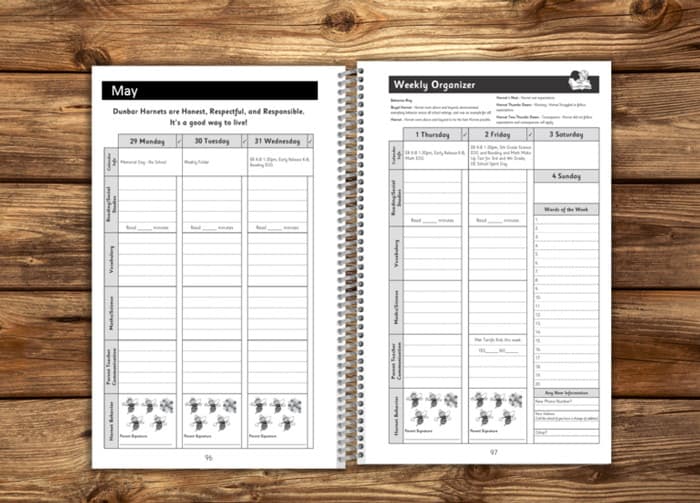Parental engagement is vital. You’d have a tough time finding an educator who wasn’t aware of the benefits of parents taking an interest, and getting involved in their child’s education.
Unfortunately, it’s really not that easy. Parents sometimes don’t show a desire to take a more active role. There are a number of reasons behind this, from a lack of confidence, to a negative perception of schools formed in their school days, and sometimes just not knowing how or why they should get more involved.
Many of the barriers will take a long term strategy to get past, but here are ten ideas you can implement today that could improve your home-school communication and ultimately increase parental engagement.

1 – Remove Barriers
Try not to wait for parents to come to your classroom or office to see you, go to them. Stand by the gate for ten minutes at the end of the day. Welcome students (and parents) by the entrance to school in the morning.
Putting yourself out there, and letting parents become familiar with who you are and what you do, will make you far more approachable. The number of potential communication methods available to use is growing daily, and some of them are fantastic, but nothing quite beats human engagement.
2 – Make Yourself Available
Schools should be run like schools, not like doctor’s offices.
There is very little that is enjoyable about a trip to the doctor, and the process of having to call, book an appointment, and wait until a time that is good for them (almost entirely regardless of how convenient it is for you), does not make those occasions any better.
It’s important to be available for parents. If Mrs. Santana calls the office asking to see you, don’t put her off until next week, see her as soon as you possibly can. Sooner even. Otherwise she might think twice before expressing her concerns or posing her questions next time. The more open and available you are, the more likely it is that parents will come to you when they need you.
You want them to feel comfortable in the school environment, so make it a personal challenge for the rest of the year to make yourself completely available for parents, even if it means delaying a meeting for ten minutes.
3 – Stop Sending Letters Home
Not everything has to be communicated by letter. While it may be an easy and cost effective method of getting your message out to parents, it isn’t the only option.
Parents can get a bit annoyed by the number of letters they receive in their mailbox, or that are handed to them when their child arrives home from school. So in their eyes, the less letters they receive, the better. Sending less letters will also make parents pay closer attention to the ones they do receive.
Letters also do very little for parental engagement. They are very much a one-way communication tool. Sure a parent could fire up a laptop, type out a reply, print it and mail it to your school office, but that’s unlikely. And yes, they could read a letter and pick up the phone to try and speak to someone about it – but again, you’re creating an extra step they need to take before they can speak to someone.
If you want to engage parents, try to make sure that the majority of your communications are easy to respond to. Otherwise your communication will only be one-way, which alienates parents. Emails are a perfect example of this, they are quick, cost effective, and allow parents to reply easily. But there are other communication channels that do an equally good job – maybe even better.

4 – Drop Them a Text
Let’s face it, texting is the communication method of our time. It’s quick, it’s easy, and it’s instant. It also enables parents to reply with ease, so it’s got an advantage over letters already.
There is an issue with texting however. It can seem a little bit… intrusive. While, sure, some people are happy to dish their cellphone number out to anyone, and enter it into every form they fill out on-line, no matter how ‘secure’ the website might be, at the same time, there are a number of people who are not so liberal with their personal information. And while I’m sure there would be little danger in them allowing their child’s school to text them with updates and news, they might prefer to reserve that capability for friends and family.
The real thing to consider here is the need to be accommodating. If texting would work for your parents, then go for it. If not, then try to think of another way. If you want to encourage parental engagement, try asking them how they want to be communicated with.
5 – Go Social
Have you added social media to your communication mix yet? Sure, you are on social media, and you probably post some great content too, but do you use it for communication? Not just announcements and one-way communication, but conversations with parents? If not, why not?
We saw a school’s social media account recently which replied to a parent asking about the P.E. uniform policy, by telling her that she needs to contact the school office for those kinds of questions. Again, you need to ask parents how they like to communicate, rather than telling them to communicate how you want them to.
If a parent reaches out to you in any way, even through Twitter, reply to them. It may not be your communication method of choice, but at least they are coming to you. Plus social media needs to be social, it’s in the name!
6 – Run Workshops
It might seem daunting to suggest to parents that they could come in for after school classes, but sometimes it works. Run a workshop on I.T. skills, or run an after school art class for parents (and their children). Not only will it get parents involved but it might help your students learn too.
Parents should be invited into school more regularly than just once a semester for parent/teacher conferences. They need to feel like the school is there for them too. We spoke to a science teacher recently who has parents in one evening a month to try some of the experiments their children are doing. It’s fun, it’s educational, and it helps parents see what lessons in your school are like.
7 – Flatter Them
We thought about naming this section ‘Use Them’, but decided that might sound too negative. But it is still a great way of getting parents involved. Use them in school, or in extra curricular activities. You’d love to run a workshop to teach your students how to change a car tire, but no one on the staff would be able to demonstrate the method nearly as well as Daniel’s dad, he is a mechanic after all.
So ask him. Flatter him. Tell him how much the students would benefit from him helping out. Psychology tells us that people respond more positively if they feel like they are needed. (When was the last time someone asked you for a favor and you said no?)
Similarly, if you teach in a multicultural school, tell your parents how great it would be if they could come in and speak to some of the students about their culture. It will be a great way for students to develop a deeper connection with one another and will help get parents engaging in the school and in their child’s education.

8 – Be Positive
All too often parents associate a letter or phone call home with something negative. Otherwise why would you bother trying to contact them? If you want to increase parental engagement at your school, the last thing you want to do is to only relay negative messages to parents. Just imagine how that could make them perceive the school.
Be positive. Don’t only send messages home to report on misbehavior or unexplained absences. Make an effort to let parents know about the good things too. The excellent work, or the incredible effort their child has been putting in.
Parent’s love it when they hear that their child is doing well. But not so much when they hear negative things about their child. So if you want to get parents on your side, and improve parental engagement through home-school communication, this one makes a lot of sense!
9 – Let them know why!
It would be very difficult to find an educator who doesn’t recognize the benefits of increased parental engagement in schools. But are the parents at your school as aware?
Be honest and upfront. Tell parents why it is so important to you that they get involved in their child’s learning. And tell your students about the benefits too, while you’re at it.
If they understand why you contact them regularly, and why you try to involve them as much as possible, they may be happier to contribute and involve themselves voluntarily in their child’s education.
10 – Use Your Student Planners
Does your school use student planners? They’re not just tools for recording homework, or at least, they shouldn’t be. The fully customized versions can be used for home-school communication.
Design a parent’s comment box into the weekly section, or even feature pages devoted to parent/teacher communication. It’s simple, but it works. A well designed student planner can strengthen the connection between students, parents and educators while allowing students to hone their organizational skills.